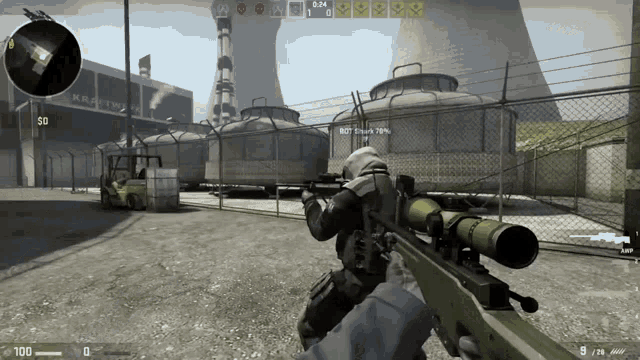Bedding Insights
Exploring the latest trends and tips in bedding and sleep comfort.
Friendly Fire: The Hidden Saboteur of CSGO Teams
Uncover the dark side of CSGO teams! Explore how friendly fire can sabotage your game and learn to turn the tide in your favor.
Understanding the Impact of Friendly Fire on Team Dynamics in CSGO
In the competitive world of CSGO, the phenomenon of friendly fire can have significant ramifications on team dynamics. While the game emphasizes strategic teamwork and coordination, incidents of friendly fire can lead to unintended consequences that affect a team's morale and performance. When a player accidentally eliminates a teammate, not only does it disrupt the immediate gameplay, but it can also lead to frustration and discord among team members. This disruption can ripple through subsequent rounds, impacting communication and fostering a culture of blame rather than collaboration.
To mitigate the detrimental effects of friendly fire, teams must adopt a proactive approach to communication and strategy. Establishing clear roles and using voice chat effectively can help in minimizing misfires. Furthermore, incorporating practices such as regular team briefings and post-match reviews can cultivate a positive team atmosphere, turning moments of friendly fire into learning opportunities rather than sources of conflict. Ultimately, understanding the impact of friendly fire on team dynamics in CSGO is crucial for any squad aiming for sustained success in an ever-evolving competitive landscape.

Counter-Strike is a popular first-person shooter game that has captivated gamers for years with its competitive gameplay and teamwork dynamics. For those looking to improve their skills, exploring cs2 pro settings can provide insights into how top players optimize their performance. The game features various modes and maps, allowing players to engage in intense battles and strategic maneuvers.
Top Strategies to Minimize Friendly Fire and Boost Team Performance
Minimizing friendly fire in team settings is crucial for maintaining morale and optimizing overall productivity. One of the top strategies to achieve this is to establish clear communication protocols. Encourage team members to use specific terms and codes when discussing tasks and objectives, which can significantly reduce misunderstandings. Implementing regular team meetings and utilizing collaborative tools can further enhance this transparency, ensuring every voice is heard and every task is clearly defined. This proactive approach creates a foundation of trust and clarity that is essential for teamwork.
In addition to communication, defining roles and responsibilities is vital in preventing friendly fire incidents. Each team member should have a clear understanding of their individual responsibilities and how they contribute to the team’s goals. Consider creating a visual role matrix that outlines who is responsible for what tasks. This way, everyone knows their role and can avoid stepping into someone else’s territory, which often leads to confusion and conflict. As a result, boosting team performance becomes a natural outcome of having these structured roles in place.
Is Friendly Fire Holding You Back? Identifying Common Mistakes in CSGO Teams
In the high-stakes world of CSGO, communication and teamwork are vital for success. However, one of the most common mistakes that can undermine your team's efforts is friendly fire. This occurs when teammates accidentally shoot each other, leading to unnecessary deaths and unfavorable trades. It's crucial to identify how friendly fire impacts your gameplay and to take proactive steps to mitigate it. Implementing clear callouts, establishing designated areas for crossfire, and practicing situational awareness can greatly reduce the instances of accidentally hurting your teammates.
Another essential aspect is to evaluate your team's composition and roles. Sometimes, friendly fire can stem from poor positioning or overlapping responsibilities during intense moments. Assess whether your players are equipped to handle their roles effectively without encroaching on one another's space. By ensuring that each member of your team is aware of their role and maintains appropriate positioning, you can significantly minimize the risks associated with friendly fire. Remember, a well-structured team is less likely to fall victim to common mistakes that ultimately hold them back from achieving their competitive goals.